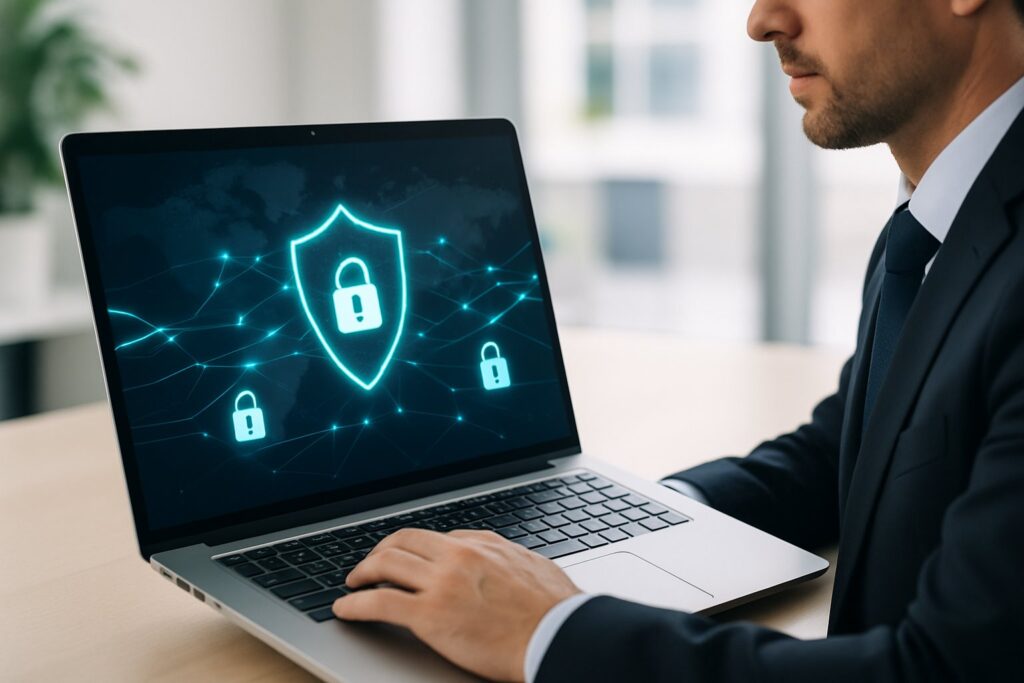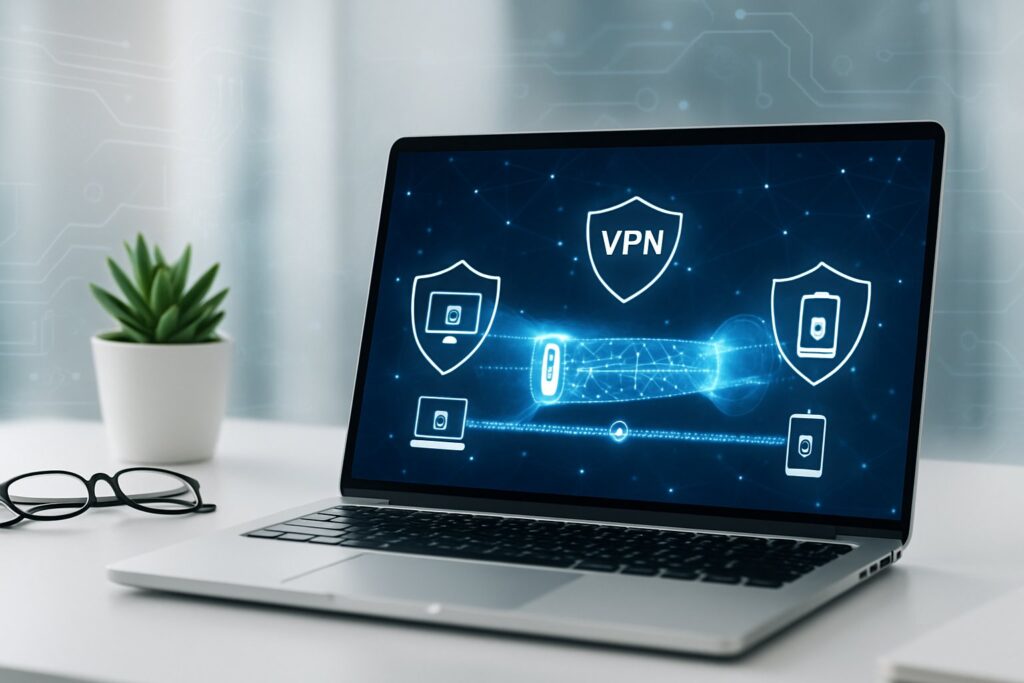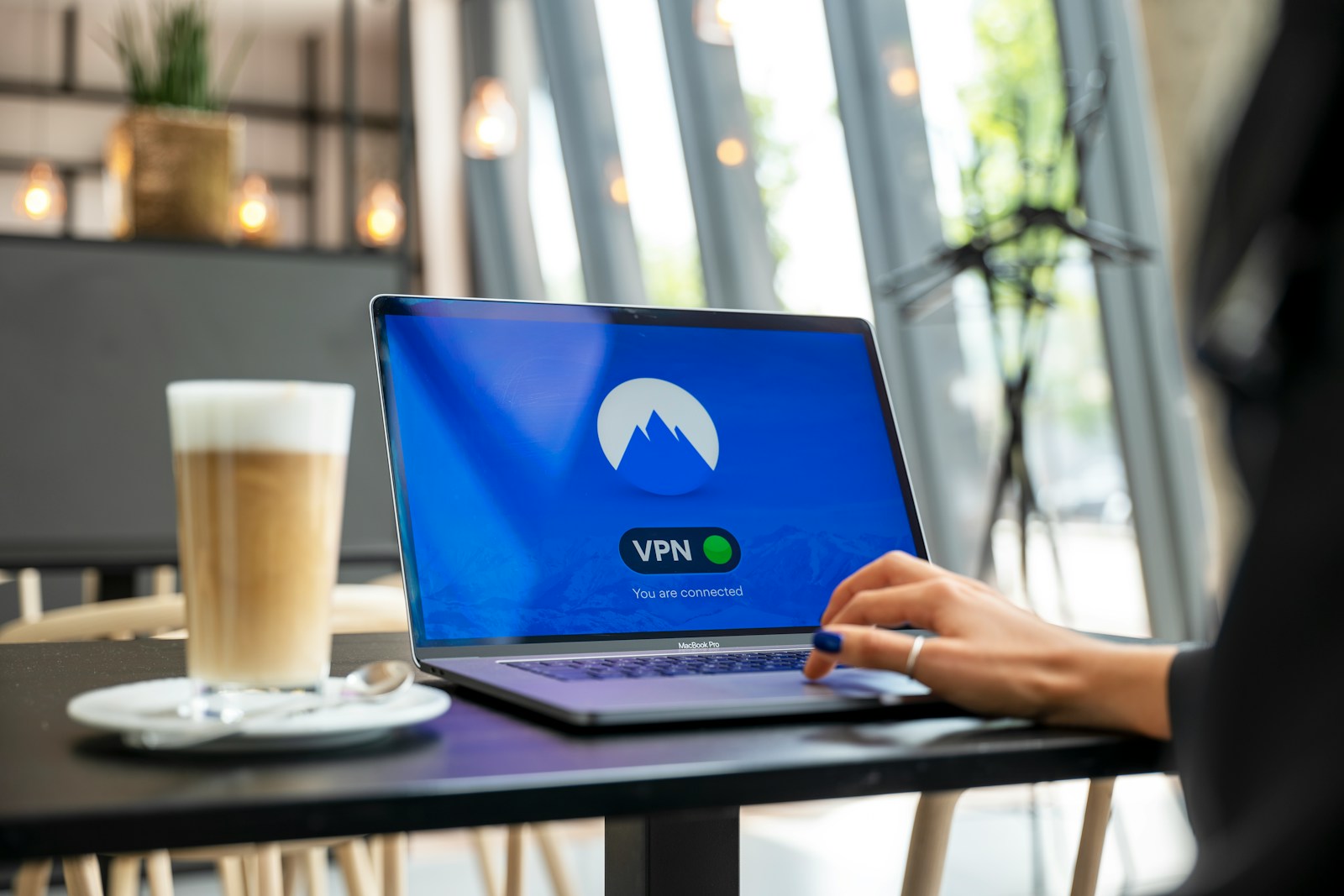VPN, or virtual private network, is a technology that protects privacy and data security while using the internet. VPN allows the user to securely transmit information over public networks, hiding their true IP address and encrypting all internet traffic. This makes it harder to be tracked and easier to avoid spying when using a VPN.

VPN is becoming increasingly popular, especially when someone wants to access content unavailable in their country or uses public Wi-Fi networks. Such a tunnel between the computer and the VPN server provides an additional layer of protection and anonymity.
It is useful not only at home but also at work, where maintaining the confidentiality of transmitted information is important. VPN is also a convenient option for those who want to browse the internet securely or access services unavailable in their region.
Key Information
- VPN increases privacy and security on the internet.
- It works by encrypting data and hiding the IP address.
- It is useful in both everyday life and business.
What is VPN – Virtual Private Network
A virtual private network (VPN) is a technology that allows for secure data transmission over the internet. It enables users to protect their information and maintain privacy while using the network.
Basic Definition and Principle of Operation
VPN creates a closed tunnel between the user and the target server. This tunnel ensures that data is transmitted as if the user were on their private network, even when using public internet.
An example of VPN use is accessing company resources from outside the office, without the risk of data leakage. This technology is used by both individuals and companies to enhance communication security and access content with regional restrictions.
In practice, the user connects to a VPN server, which acts as an intermediary in data transmission. The IP address is masked, so the user’s true location is hidden.
VPN Technology and Data Security
VPN plays a significant role in protecting online privacy. It encrypts transmitted information, so even if someone intercepts the connection, they cannot read the data.
This provides a greater sense of security on public Wi-Fi networks, such as in cafes or airports. Eavesdropping on network traffic does not give access to the user’s real data.
This helps avoid attacks such as spoofing, password interception, or online activity monitoring. Companies also use VPNs so that employees can securely connect to the company’s internal systems from abroad. You can read more about the security offered by VPN on the page about the operation of virtual private networks.
Tunneling and Encrypting Connections
Tunneling is the process of creating a virtual channel through which data is transmitted between the user’s device and the VPN server. The tunnel hides the content of the connection from outsiders. Even the internet service provider cannot see what the user is doing online.
Encryption transforms plain text data into a form unreadable by outsiders. Only the VPN server or the appropriate recipient can decrypt it. The most popular encryption protocols in VPNs are OpenVPN, IKEv2/IPSec, and WireGuard.
The table below shows the benefits of tunneling and encryption:
| Benefits of Tunneling and Encryption | Description |
|---|---|
| Data Protection | Prevents third parties from reading transmitted information |
| IP Address Hiding | The user maintains anonymity |
| Secure Access to Resources | Even from public Wi-Fi networks |
Tunneling and encryption are the foundation of every VPN technology, as they are responsible for the anonymity and security of users on the internet. The most popular service of this type is NordVPN.
How VPN Works and What It Allows the User
VPN protects the user’s personal data while using the Internet, masks the IP address, and allows for secure and anonymous browsing of websites. This helps protect privacy, change location, and reduces the risk of data loss on public Wi-Fi networks.
Privacy and Anonymity Protection Online
VPN provides a higher level of privacy and anonymity online. It encrypts the internet connection, making the data transmitted over the network harder to intercept by third parties. This also includes personal data, such as logins or passwords.
When you use a VPN, your IP address is not visible to websites. Information about location and online activity is protected, which reduces the chances of tracking and profiling by advertising companies. It can be said that VPN is a practical element of GDPR that strengthens control over personal data.
VPN works well in both home and corporate networks, where protecting the confidentiality of information is essential.
Changing Location and Hiding IP Address
With VPN, you can choose a server in another country. This makes your IP address appear to be assigned to the selected region. As a result, you can change your visible location on the internet.
This allows you to bypass regional blocks and access websites or services that are unavailable in your country. An example? Streaming services or websites with limited content availability – more on this topic here.
Hiding the true IP address provides additional identity protection and reduces the risk of network attacks aimed at a specific person.
Secure Access to Public Wi-Fi Networks
Wi-Fi in cafes, hotels, or airports? Almost everyone uses it, although most of these networks are poorly secured. Unfortunately, this means a higher risk that someone will spy on your private data. VPN automatically encrypts all your internet traffic, regardless of where you are.
Even if someone intercepts data on a public network, information such as logins or card numbers remains encrypted. This is really important if you don’t want to fall victim to identity theft.
Key Elements and Mechanisms of VPN Operation

VPN uses several mechanisms to protect your data on the internet. The most important are VPN servers, encryption, and the impact of these solutions on speed and network stability.
VPN Server and Its Role in Data Transmission
A VPN server acts as an intermediary – it connects your computer to the rest of the internet. When you activate VPN, all traffic first goes to the VPN server and only then to the target website or service. Your real IP address is hidden – you appear on the internet as the VPN server.
You can choose the country through which your traffic passes, allowing you to bypass geographical blocks. The VPN server can also be set up on a router, covering all home devices with protection. This provides greater privacy and anonymity, and your data is better protected (more about the role of the VPN server).
Data Encryption – Types and Their Importance
Encryption makes your data completely unreadable to outsiders. VPN creates a “tunnel” between your computer and the VPN server. If someone intercepts data on the way – they cannot read it without a special key (more about encryption in VPN).
The most commonly encountered types of encryption are AES-256 and protocols like OpenVPN and WireGuard. AES-256 provides a high level of security, and even banks use it. The choice of protocol affects how well your data is protected and how fast the connection works.
Impact of VPN on Connection Speed and Stability
VPN can slow down the internet – data is encrypted and must pass through an additional server. The further the selected server is, the greater the potential delays.
Modern protocols and good encryption help minimize speed drops. Stability depends on the quality of the VPN server and the network. It is best to choose servers that are close by and use protocols like WireGuard, which provide fast and stable connections, even through routers or Wi-Fi.
Applications of VPN in Everyday Life and Business
VPN protects sensitive data and allows for secure connections to the corporate network while working remotely. This enables both individuals and companies to avoid security breaches or unauthorized access to important information.
Protection of Personal Data in Light of GDPR
GDPR requires companies to care for the privacy and security of personal data. VPN helps meet these requirements – it encrypts transmitted data and hides users’ IP addresses. This reduces the risk of unauthorized access even on public Wi-Fi networks.
With VPN, it is easier to avoid personal data leaks or cybercriminal attacks. The encrypted connection between the computer and the server minimizes the possibility of intercepting sensitive information. A virtual private network also allows for anonymity online, which is compliant with GDPR.
Key Benefits of VPN in Data Protection:
- Data transmission encryption
- Hiding the true IP address
- Meeting GDPR security standards
Secure Remote Work and Access to Corporate Networks
Remote work is a reality today. Employees need secure access to corporate documents or servers. VPN creates an encrypted tunnel between the employee’s device and the company’s network, making it difficult to intercept data.
Thanks to VPN, companies can better control who has access to key information. Different levels of permissions can be set, and connection attempts can be monitored. This realistically reduces the risk of breaches or data leaks.
More and more companies are choosing VPN to secure remote work – this way, they protect customer data, employee information, and their own trade secrets. It is not only a matter of security but also building trust with contractors. You can find more about business applications of VPN on the Bitdefender website.
Frequently Asked Questions
VPN allows you to maintain privacy online by encrypting user data and changing their IP address. Different devices and systems provide VPN features in different ways, and costs and security depend on the chosen solution.
How Does VPN Work on a Phone?
VPN on a phone creates a secure tunnel between the smartphone and the Internet. The VPN app encrypts the data that the phone sends and receives, so no one should be able to spy on them or your location. Using VPN, you can confidently use your phone even on public Wi-Fi networks without worrying too much about security.
How to Enable VPN Service?
You can activate VPN through a dedicated app or directly in the phone’s settings. After installing the VPN app, you just need to log in and connect to the selected server. On some devices, you just need to go to network settings and add a new VPN profile – that’s all.
How to Disable VPN Service?
To disable VPN, simply disconnect the connection in the app or turn it off in the phone’s network settings. After that, the device will use the regular internet connection again, without VPN encryption.
What is the Cost of Using VPN?
VPN prices can vary – it depends on the company. Most often, you pay a monthly or annual subscription. Some companies offer family packages or trial versions, so you can test the service before purchasing.
Are There Free VPNs and Are They Safe?
You can find free VPN services, but their security can vary. They often offer weaker encryption or sell user data for marketing purposes. It is better to opt for trusted apps and services that provide proper encryption and privacy protection.
In What Situations is it Recommended to Use VPN?
It is advisable to enable VPN when connecting to public Wi-Fi – in such places, it is easy for third parties to intercept data. It is also useful if you want to protect your privacy online or bypass regional blocks on websites or streaming services. Sometimes it is simply more convenient and provides peace of mind, especially when you are unsure who else is using the same network.

Leave a Reply